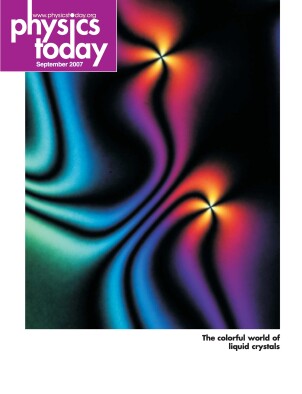Dark-energy discoverers share cosmology prize
DOI: 10.1063/1.2784694
Saul Perlmutter, Brian Schmidt, and their respective teams, the Supernova Cosmology Project and the High-z Supernova Search Team, are the recipients of the 2007 Gruber Cosmology Prize “for their discovery that the expansion of the Universe is currently accelerating.” The prize, being presented this month at a ceremony at the University of Cambridge, will be shared by the two team leaders and the 51 coauthors of the key papers.
Both teams reported in 1998 that the expansion of the universe is not slowing, as was generally expected, but was instead increasing (see the article by Perlmutter in Physics Today April 2003, page 53
Perlmutter is an astrophysicist at Lawrence Berkeley National Laboratory and a professor of physics at the University of California, Berkeley. Schmidt is an Australian Research Council Federation fellow at the Australian National University’s Mount Stromlo Observatory.




